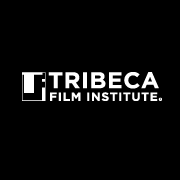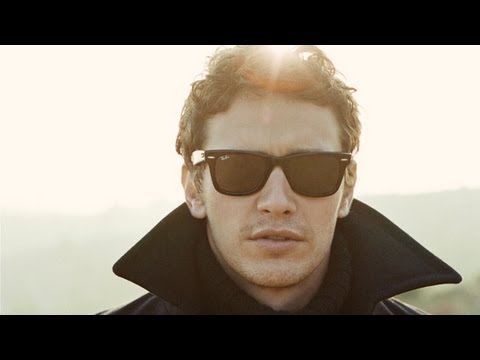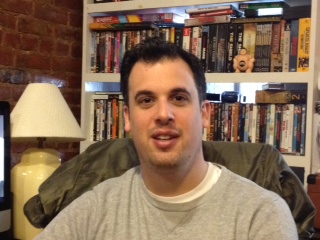|
|
||
|
Pro Tools
FILMFESTIVALS | 24/7 world wide coverageWelcome ! Enjoy the best of both worlds: Film & Festival News, exploring the best of the film festivals community. Launched in 1995, relentlessly connecting films to festivals, documenting and promoting festivals worldwide. Working on an upgrade soon. For collaboration, editorial contributions, or publicity, please send us an email here. User login |
Teenage conflicting identity: "Ali Blue Eyes" Fest21 talks with Italian director Claudio Giovannesi
Claudio Giovannesi’s first dramatic feature is an engrossing coming-of-age story following one week in the life of sixteen-year-old troublemaker Nader, an immigrant teenager who stops at nothing to fit in to Italian youth culture despite his family’s insistence that he respect his Egyptian and Muslim roots. He gets into fights, does drugs, steals and pursues an Italian girlfriend against his mother’s threats to disown him. It is a wonderfully non-judgmental study of a young man caught between conflicting states—Arab and Italian, childhood and adulthood, right and wrong—and the lesson he learns. The performances from the non-professional cast, most of whom are playing close versions of themselves, contribute to the work as being a stunning example of Italian Neorealism. Giovannesi won a special jury prize at the Rome Film Festival for this film. Synopsis Courtesy of Tribeca Film Festival
Claudio Giovannesi I noticed that at this year's Tribeca Film Festival there are quite a few films about the Arab culture and Arabs living in Western countries, including your film "Ali Blue Eyes". Can you tell us about how the idea came to you, why you chose this subject, and if there’s a personal story behind it, since you co-wrote the script? Yes, of course. The idea came becaue I wanted to make a movie about teenagers, this was the first thing. Not about teenagers that live in the centre of Rome and are in front of the television, sons of rich men and women that live a comfortable life. I wanted to write a story about teenagers that grew up on the road. The education on the street. It is very strong for me to see their point of view, close to the tragedy, close to crime; But again, it's the point of view of the teenager, so it's full of innocence. This paradox was interesting for me. Because if I make a robbery scene or a crime scene and the main protagonist is a teenager, it's different. In every sequence they have this kind of innocence. If you remember, the scene with the prostitute is one of the most important sequences of the movie, because it's a robbery to a prostitute. She is a woman, but for the guy it's like "Luna Park", that was the feeling. Everything is a game, also the tragedy and the innocence. After that I understood the difference between the guy that lives in the center of the town and the multicultural society. I start to see their life very close. There is an Italian, a Russian and a gypsy, and they stick together but they fight each other also, and for them it's like a soccer game. I discovered the multicultural society among teenagers. The next step was adolescence, it's an age of change. You change when you become an adult, you change your mind, your identity. This was interesting for me and I wanted to tell the story of this change. But this change is more complicated when your soul is separated. If you have the culture of your father and the culture of the present, when you have to live in this different identity, this age change is more complicated. I tell the story of this change.
And how was the casting process? The two main protagonists have a very strong connection, so strong that I felt they knew each other in real life. The casting is very important. The mother and father are the real parents of Nader. The girlfriend is the real girlfriend of Nader. She forced him to choose her to play the girlfriend, because she was jealous. It would be impossible for her to have Nader kiss another girl and do a love scene. She is Italian, and she doesn't want to be an actor; she just wanted to supervise. So we had one week of rehearsal. When you work with a nonprofessional actor it's impossible to ask something that you could ask to a professional actor. So if I chose another girl and they didn't know each other the love would be fake. For example, the girl that plays the sister; she is not the real sister. Nader said to me, "I give you myself, and the relationship between my mother and father, but don't touch my sister. Ask what you want but don't touch my sister". Same with the father, "Ask what you want but don't touch my daughter", so I chose another actor. For me this is pure generosity, these real parents enact something that happens in their daily lives. The problem you see with the son in the movie is a problem in real life.
And his best friend? I was just curious if they knew each other because the connection was very strong. We chose Stefano after. I knew Nader from before. I did a documentary called "Brothers of Italy". Sarcastic title, because it's the story about a Romanian, a Russian and a gypsy. I chose Nader for this. And I chose the title for saying Italy is changing, it's becoming a multi cultural society. So I knew Nader from this documentary. And Stefano was a close friend of Nader. Me, the writer and the producer, we wanted to make the characters as real as possible.
Why did you choose an open ending? But for me it is not open. It doesn't matter if he decides to come home or not; of course he will go back because he is a teenager, he can't live on the road. The emotion was more important than the action. The emotion when he understands that his soul is separated, two different identities, which he understands when he sees his girlfriend for the last time. For me this is the ending.
This leads me to the title, actually – Ali Blue Eyes. He uses blue contact lenses; is it the separation of these two identities? What is the meaning behind it? He uses blue contact lenses because he is trying to look Italian or European; he is ashamed of his identity, to be a gypsy. The reason behind it is a poem by Pier Pasolini, one of Italy’s most important artists. He wrote this poem in 1962 entitled "Prophecy". He knew he was making a prophecy because he chose the title. "Prophecy" is a poem about the multicultural society of the future. In 1962 he imagined a big migration from the north of Africa to Europe and to the United States, and he imagined the leader of this migration was a boy with blue eyes, called Ali. For this coincidence we chose this name for the title. Everyday on set the father of Nader asked me why I chose the name Ali, because his son is called Nader.
How was the reaction in Italy? You won a few awards. The Italian reaction was very good, but people were a little scared, they wondered if this youth really exists, and I answered yes, it exists it's ten minutes away from you.
Regarding the style, it reminded me of a recent film, The Place Beyond the Pines; you feel as if you’re moving along with the characters. Probably you are talking about the first scene of Ryan Gosling walking towards the wheel. It was not a purposely aesthetic choice; it was the moral point of view, because you have to follow the shadow of the characters. We are talking about real people, so you want to follow more their shadows, otherwise it becomes fake. You can't tell the actor, “Move from here to there”, it just becomes choreographed. They have to forget the camera, so you have to follow them. It’s like a war reporter; he doesn't know if something will explode and from where. Same thing here: the camera operator doesn't know where the characters will go, for this I chose to follow them.
What about future projects? I just finished this Saturday shooting a documentary in Prague. It's a very strong story, about the son of a Rabbi that was accused of collaborating with the Nazis in World War II. The son is now 17 years old. He has to go every week to a psychologist, because of his parents’ trial. I started to film the relationship between the doctor and the son. After the Rabbi was accused there was a trial process; he was considered not guilty, but the Jewish community completely shut him off. I made a movie about a young Arab and, after that, another about an old Rabbi; and I am neither Muslim nor Jewish. Now I am developing a project about a little girl that is going to jail for two months; she goes to cover for her dad, the one who actually committed the crime. She covers for him because she is 16, otherwise her father could get eight years.
Tribeca Film Festival 2013 by L. Fietz
26.04.2013 | Tribeca Film Festival's blog Cat. : PEOPLE
|
LinksThe Bulletin Board > The Bulletin Board Blog Following News Interview with EFM (Berlin) Director
Interview with IFTA Chairman (AFM)
Interview with Cannes Marche du Film Director
Filmfestivals.com dailies live coverage from > Live from India
Useful links for the indies: > Big files transfer
+ SUBSCRIBE to the weekly Newsletter DealsUser imagesAbout Tribeca Film Festival Online Dailies Coverage of the Tribeca Film Festival, April 17-28, 2013
The Tribeca Film Festival brings together local, national, and international talent to provide the New York City, downtown community with five days of screenings, educational workshops, and various special events.
View my profile Send me a message My festivalThe EditorUser links |































